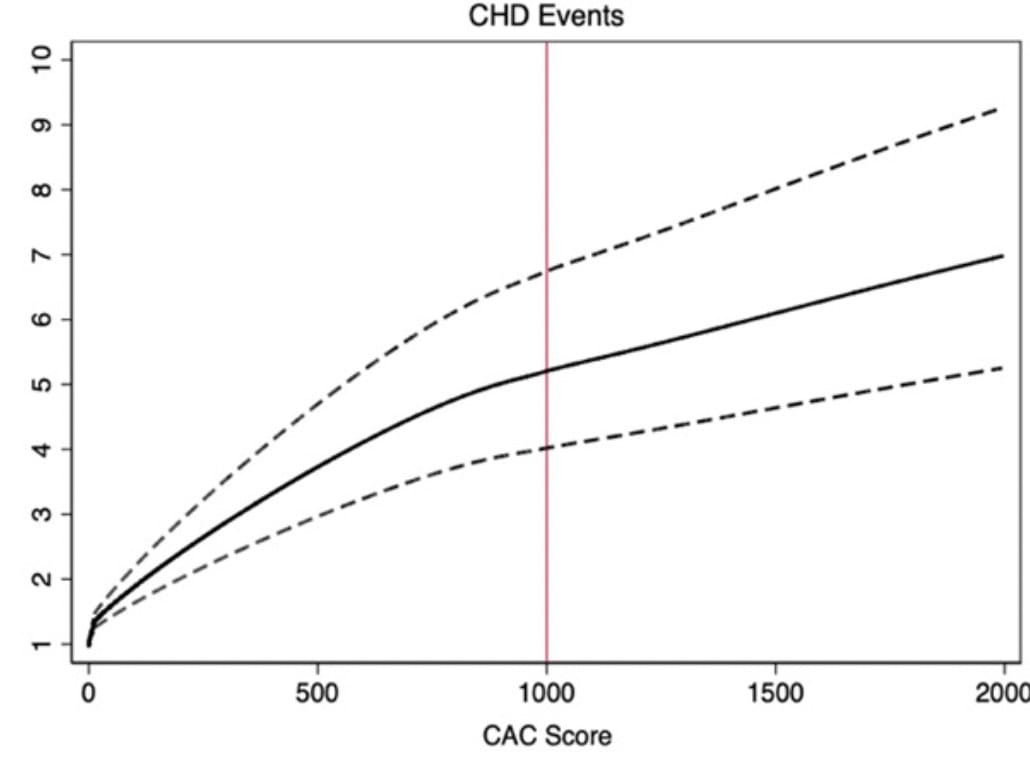- The Pulsometer
- Posts
- Why Your Coronary Artery Calcium Score Matters
Why Your Coronary Artery Calcium Score Matters
What is a calcium score?
Coronary artery calcium (CAC) is perhaps the most objective measure of the risk of future coronary artery disease risk. CAC is also one of the best ways to detect subclinical (i.e., coronary disease in a person who is not exhibiting symptoms) coronary atherosclerosis. Knowing your CAC score is a crucial component to understanding where you stand on the spectrum of coronary disease risk, and can help influence how you think about risk modification in terms of cholesterol management and lifestyle factors. If the CAC score is very high, it might mean that doing further testing is advisable, such as a stress test or an angiogram.
How is a calcium score performed?
Coronary calcium is detected by a CT scanner set to a specific protocol and and quantified in a standardized, unitless measurement called “Agatston units (AU).” The scan itself takes just a few minutes and the radiation dose is minimal, about the same as a mammogram or a few trips from New York to London. Moreover, the test is relatively inexpensive (about 100$) and is easily available, as no doctor’s prescription is needed and most cardiac centers will offer the test on essentially a walk-in basis.
How do you interpret a calcium score?
Though the test is simple, the result can be dramatic. In some ways, we can think about the result as binary: either you have calcium or you don’t. The ideal CAC score is 0. In this case, your risk for a coronary artery event in the next 3-5 years is likely to be very low, probably 1% or less. If your calcium score is above 0, this means your body has already started processing and trying to “stabilize” unstable plaque by converting into calcium.
While low calcium scores are reassuring, high scores mean increased risk. Some data suggest a CAC>300 correlates with a risk similar to someone what has already had a heart attack.
When a calcium score is greater than 0, I tend to advise patients to really focus on changing their lifestyle and to seriously consider some form of pharmacologic LDL lowering therapy.

Peng et al, Circulation 2021; Coronary heart disease events increase significantly with increases in CAC score. Y axis represents hazard ratio, dotted lines represent confidence interval
Generally, the higher the calcium score the higher the risk of heart disease. In people with a CAC score greater than 400, a stress test might be appropriate. In patients with a score greater than 1000, an angiogram (to look directly at the coronary arteries) might be recommended, depending on the individual situation.
Summary
Coronary artery calcium scoring is therefore an inexpensive, easily available, and highly informative test that can help predict future risk of coronary disease. Most people are likely to live in an area where testing can be arranged without a doctors order. If you are looking for an objective measure of heart disease risk, this test is likely one of the best you can seek
References/Acknowledgements
Gaine et al, JACC 2023, “Coronary Calcium Score as a Graded Decision Tool”
Peng et al, Circulation 2021, “Very High Coronary Artery Calcium (≥1000) and Association With Cardiovascular Disease Events, Non–Cardiovascular Disease Outcomes, and Mortality: Results From MESA”
Reply